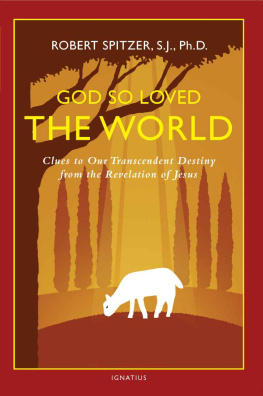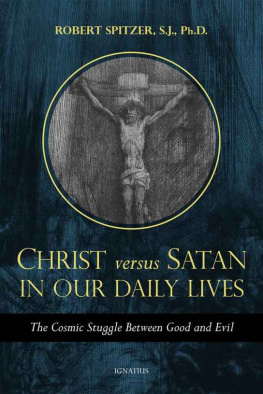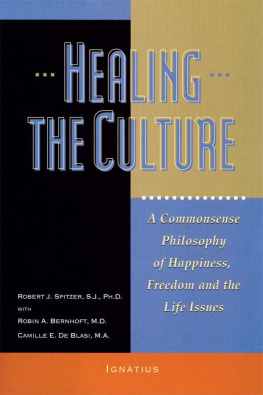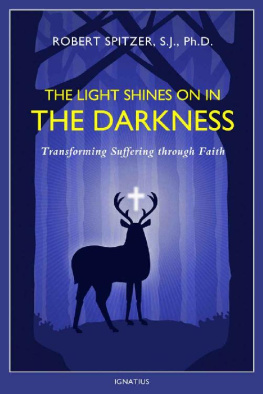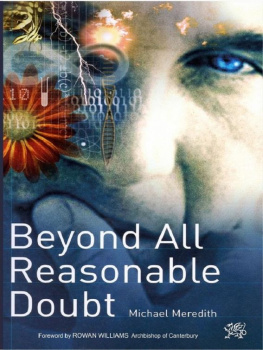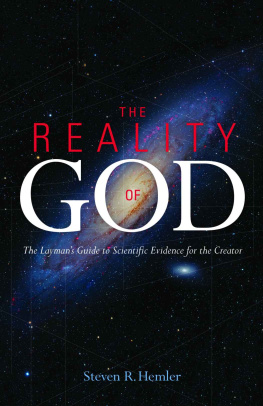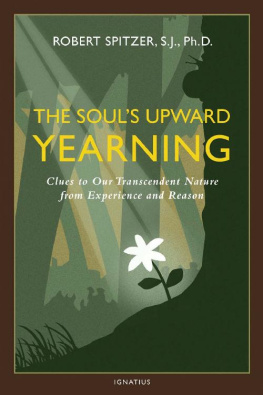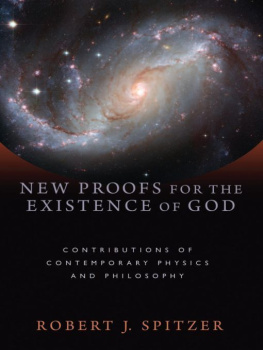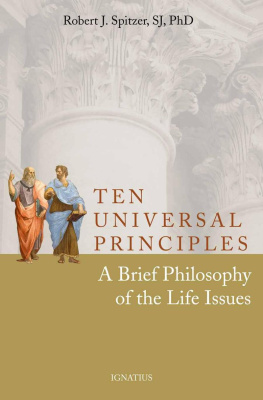Robert Spitzer - God So Loved the World: Clues to Our Transcendent Destiny from the Revelation of Jesus
Here you can read online Robert Spitzer - God So Loved the World: Clues to Our Transcendent Destiny from the Revelation of Jesus full text of the book (entire story) in english for free. Download pdf and epub, get meaning, cover and reviews about this ebook. year: 2016, publisher: Ignatius Press, genre: Home and family. Description of the work, (preface) as well as reviews are available. Best literature library LitArk.com created for fans of good reading and offers a wide selection of genres:
Romance novel
Science fiction
Adventure
Detective
Science
History
Home and family
Prose
Art
Politics
Computer
Non-fiction
Religion
Business
Children
Humor
Choose a favorite category and find really read worthwhile books. Enjoy immersion in the world of imagination, feel the emotions of the characters or learn something new for yourself, make an fascinating discovery.
- Book:God So Loved the World: Clues to Our Transcendent Destiny from the Revelation of Jesus
- Author:
- Publisher:Ignatius Press
- Genre:
- Year:2016
- Rating:4 / 5
- Favourites:Add to favourites
- Your mark:
God So Loved the World: Clues to Our Transcendent Destiny from the Revelation of Jesus: summary, description and annotation
We offer to read an annotation, description, summary or preface (depends on what the author of the book "God So Loved the World: Clues to Our Transcendent Destiny from the Revelation of Jesus" wrote himself). If you haven't found the necessary information about the book — write in the comments, we will try to find it.
In this volume the brilliant Fr. Spitzer probes in detail the major question that if an intelligent Creator God manifest in logical proofs, scientific evidence, and near death experiences - who is the source of our desire for the sacred, and the transcendental desires for truth, love, goodness, and beauty, would want to reveal himself to us personally and ultimately.
He then shows this is reasonable not only in light of our interior experience of a transcendent Reality, but also that a completely intelligent Reality is completely positiveimplying its possession of a completely positive virtue namely love, defined as agape.
This leads to the question whether God might be unconditionally loving, and if he is, whether he would want to make a personal appearance to us in a perfect act of empathy face to face. After examining the rational evidence for this, he reviews all world religions to see if there is one that reveals such a God an unconditionally loving God who would want to be with us in perfect empathy. This leads us to the extraordinary claim of Jesus Christ who taught that God is Abba, the unconditionally loving Father.
Jesus claims go further, saying that He is also unconditional love, and that his mission is to give us that love through an act of complete self-sacrifice. He also claims to be the exclusive Son of the Father, sent by God to save the world, and the one who possesses divine power and authority. The rest of the book does an in-depth examination of the evidence for Jesus unconditional love of sinners, his teachings, his miracles, and his rising from the dead. As well as the evidence for Jesus gift of the Holy Spirit that enabled his disciples to perform miracles in his name, and evidence for the presence of the Holy Spirit today.
If this strong evidence convinces us to believe that Jesus is our ultimate meaning and destiny, and desire His saving presence in our lives, that evidence should galvanize the Holy Spirit within us to show that Jesus is Lord and Savior, the way, the truth, and the life. And our faith in him will transform everything we think about our nature, dignity, and destiny and how we live, endure suffering, contend with evil, and treat our neighbor.
Robert Spitzer: author's other books
Who wrote God So Loved the World: Clues to Our Transcendent Destiny from the Revelation of Jesus? Find out the surname, the name of the author of the book and a list of all author's works by series.

